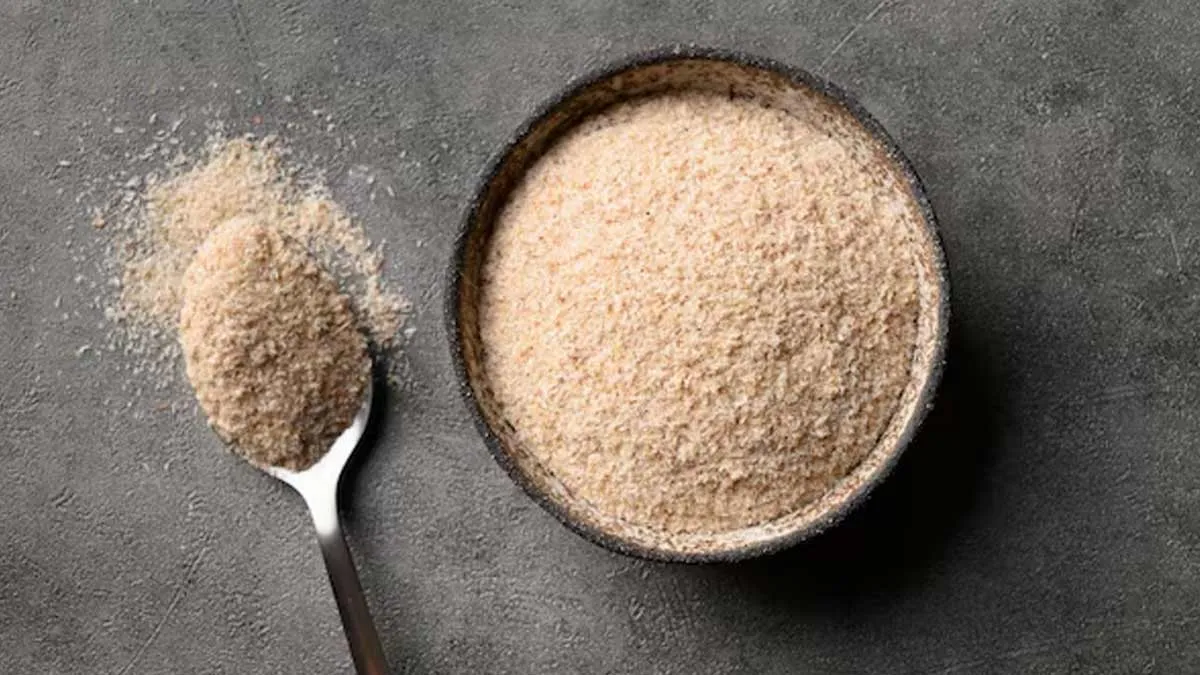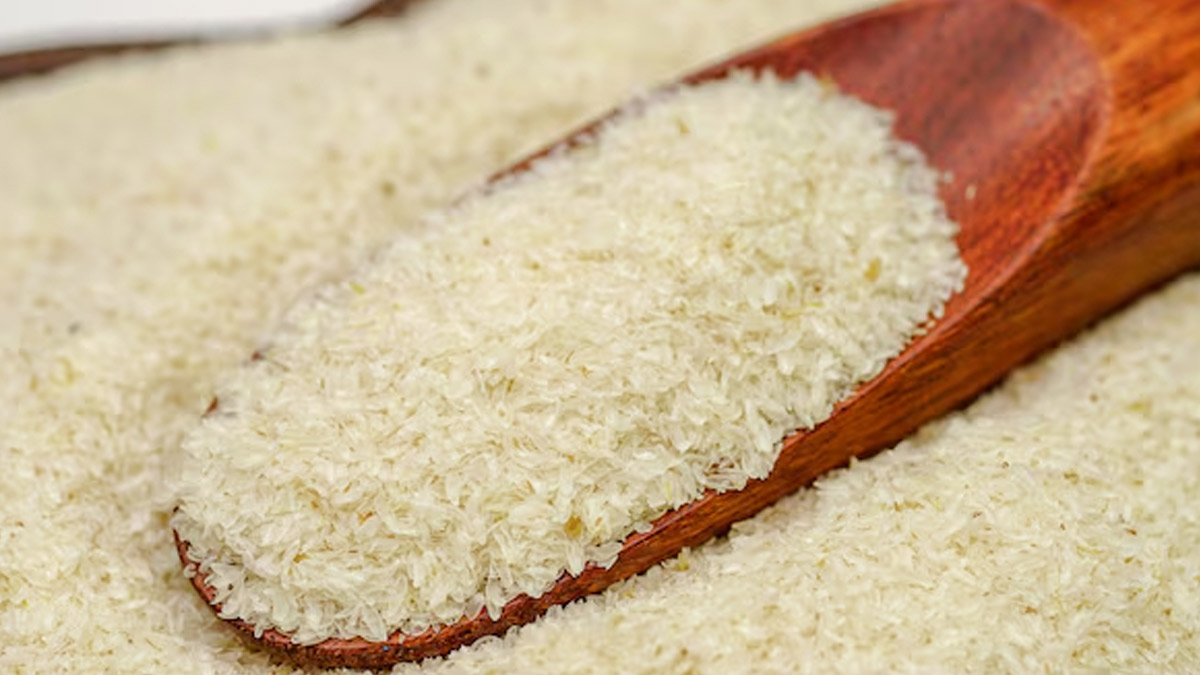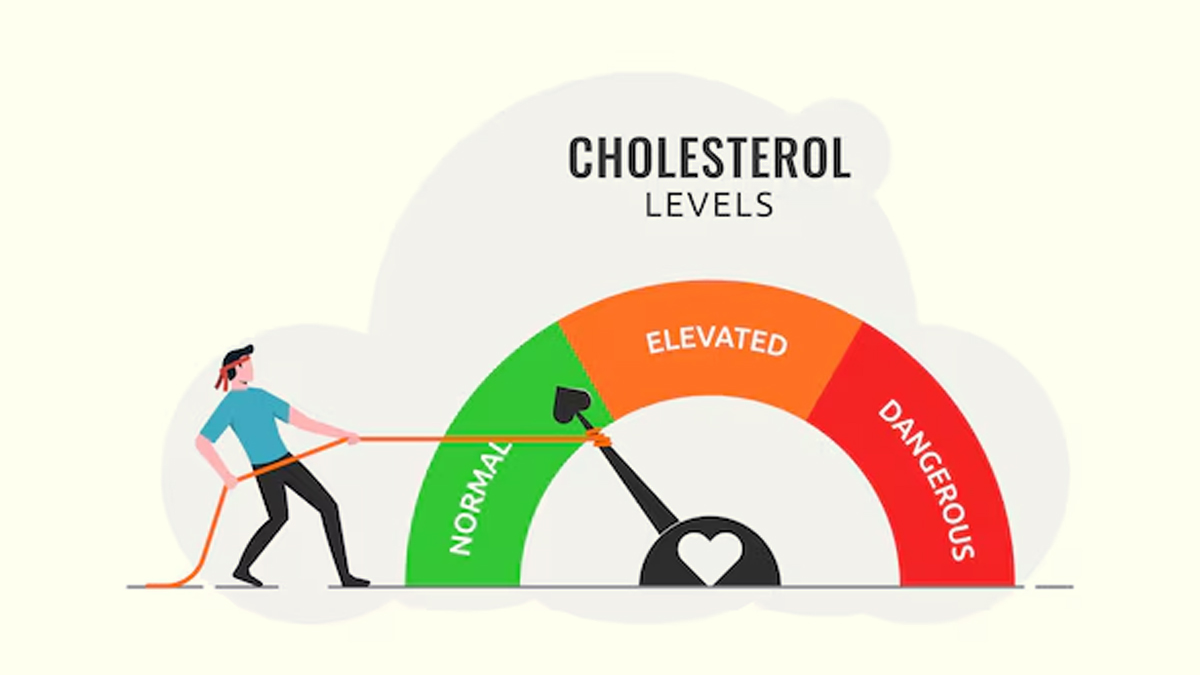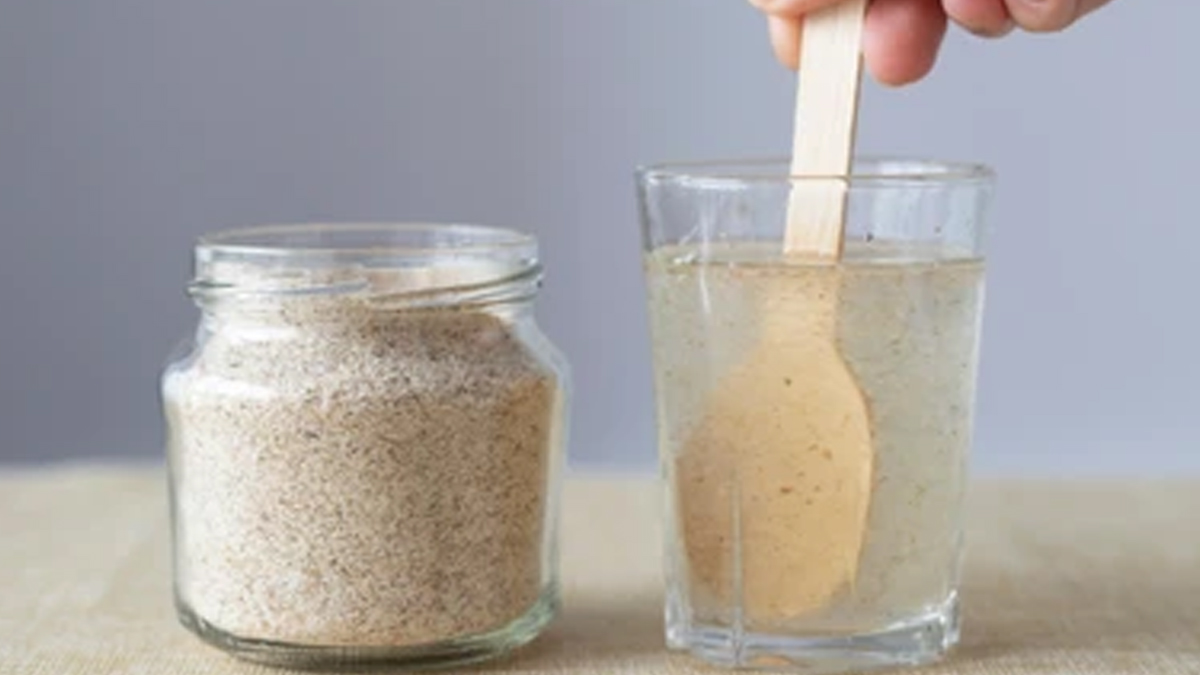
Dealing with high cholesterol levels can be a warning sign as it may lead to health conditions, such as heart disease, kidney disease, and stroke. You can mitigate these risks by maintaining a healthy diet and lifestyle. One such superfood that can help in managing cholesterol and promote your overall health is psyllium husk. Commonly known as Isabgol, this ingredient is derived from the outer coating of the Plantago ovata seed and is a rich form of fibre.
Table of Content:-

Psyllium husk is generally composed of soluble fibre, which absorbs water and forms a gel-like substance in the digestive system. This unique property makes it highly beneficial for regulating bowel movements, supporting gut health, and managing cholesterol levels. It is available in powder, capsule, and whole husk forms and is commonly used as a natural supplement for various health concerns.
How Does Psyllium Husk Help In Lowering Cholesterol?

- Psyllium husk can effectively attach to your cholesterol in the digestive tract and help remove it from your body. This process forces the liver to produce more bile acids by using existing cholesterol, effectively lowering Low-Density Lipoprotein levels (bad cholesterol), as stated in a 2017 study.
- Psyllium husk can also help in improving HDL levels, also known as good cholesterol in the body. As a result, the risk of developing cardiovascular diseases decreases.
- Psyllium husk contains fibre and anti-inflammatory properties that can help in reducing chronic inflammation and oxidative stress in your body.
- As high cholesterol is often associated with metabolic disorders, such as diabetes, psyllium husk may enhance insulin sensitivity, improving blood sugar control.
- According to a study published in the Harvard Health Publishing from 28 trials involving individuals with both normal and elevated cholesterol levels, it was found that a daily intake of approximately 10 grams of psyllium husk resulted in a reduction of harmful LDL cholesterol by 13 mg/dL when taken for a minimum of three weeks.
Other Health Benefits of Psyllium Husk

- It can help prevent constipation and regulate bowel movements by adding bulk to stool.
- The fibre in psyllium husk increases satiety, reducing overall calorie intake.
- The slow absorption of sugar prevents spikes in blood glucose levels.
- As a prebiotic, it also supports the growth of beneficial gut bacteria.
How to Add Psyllium Husk to Your Diet
- Mix with Water or Juice: Stir one to two teaspoons of psyllium husk powder into a glass of water or juice and drink immediately.
- Blend into Smoothies: Add psyllium husk to your favourite smoothie for an extra fibre boost.
- Sprinkle on Oatmeal or Yoghurt: A simple way to increase fibre intake without altering the taste.
- Use in Baking: Add psyllium husk into homemade bread, muffins, or pancakes to enhance their nutritional value.
Things You Should Remember
You should take note of the dosage when consuming psyllium husk to avoid any side effects. It is normally safe to consume 5-10g of psyllium, with meals, at least once daily. Avoid overconsumption and keep yourself hydrated throughout the day. You can start by consuming 5g with a glass of water three times daily and increasing the dose gradually. It is important to consult your healthcare professional before adding it to your diet, especially if you are dealing with any health issue.
[Disclaimer: This article contains information for informational purposes only. Hence, we advise you to consult your professional if you are dealing with any health issue to avoid complications.]
Also watch this video
How we keep this article up to date:
We work with experts and keep a close eye on the latest in health and wellness. Whenever there is a new research or helpful information, we update our articles with accurate and useful advice.
Current Version
